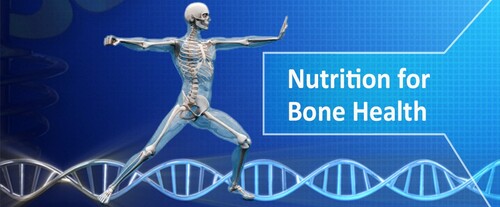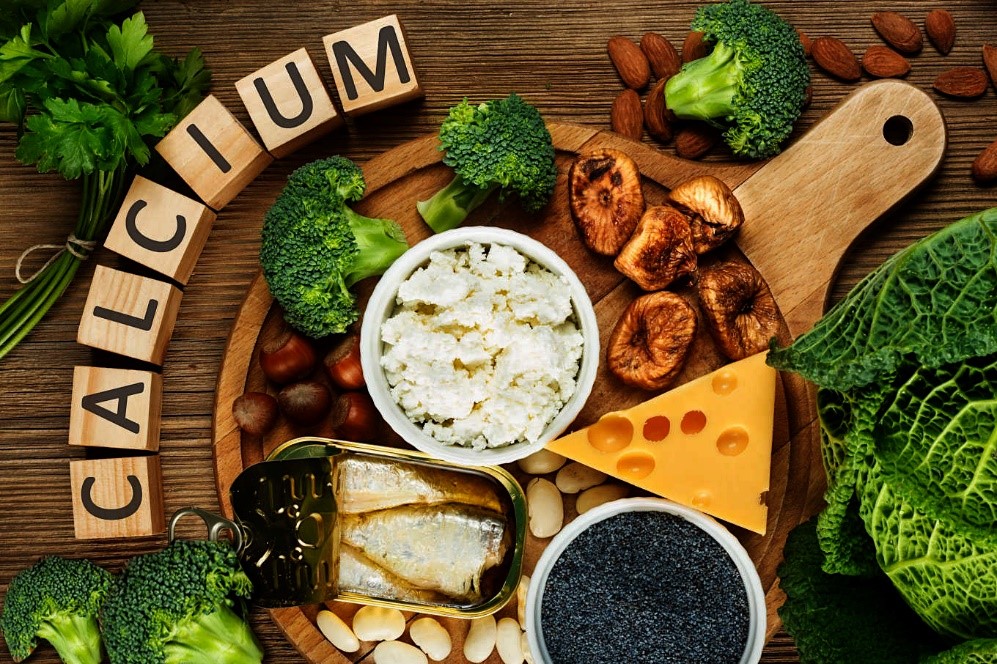Nutrition for Bone Health

Rickets – All You Need to Know
December 28, 2019
8 Tips To Prevent Knee Injuries In Kids
September 3, 2020
We all know that bone health is important for various reasons.
- Bones protect our vital organs from injury.
- Bones support us, and allows us to move, and do what we would like.
- Our bones are our storage system. They store vital nutrients such as calcium and phosphorous which are released as per requirement. They are released when we need them and when the blood levels drop.
About 75% to 85% of our skeleton is built during adolescence. We begin to lose calcium as adults.
We do need sufficient bone nutrients like calcium and vitamin D to build the best strongest bones and also to maintain our bones.
Things you can do to keep your bones healthy:
- Healthy food choices
- Well-balanced diet
- Eating foods rich in calcium and vitamin D
- Vitamin and mineral supplementation (if and when needed)
- Exercise and physical activity
- Good health habits.
The nutrition part is really important. So, overall, a good nutritious food:
- Keeps us hydrated
- Gives us fiber, vitamins and minerals
- Helps us to maintain and support a good healthy weight
- Helps to maintain your soft tissue, which is protecting your bones.
Nutrients required to keep our bones healthy:
1. Calcium
Calcium is important for your bones as it keeps your bones healthy. 99% of the calcium in our bodies is located in our teeth and in our bones.
Calcium is utilized for a multitude of different functions including muscle function, heart function, nerve function, etc.
If our bodies are not getting the calcium that it needs to maintain these functions, then our bodies steal calcium from our bones. This leads to a deficiency of calcium in our bones.
Truly, you need to intake enough calcium to ensure that your body is getting enough calcium from your diet so it doesn’t have to steal calcium from your bones.
According to the National Institute of Nutrition of India, children up to the age of 18 years require 500 – 800 mg of calcium per day. You need to get these milligrams of calcium from food as well as other supplements.
Calcium sources:
- Dairy products such as milk, yogurt and cheese are very healthy for your bones. They provide Calcium as well as Vitamin D to your bones.
- Fish such as salmon, tuna, shellfish, also have enough calcium and vitamin D that takes care of your bone health.
If you are a vegan, then you can have:
- Green leafy vegetables
- Fruits – Orange, Kiwi, Guavas, Papaya
- Potatoes
- Tomatoes
- Bananas

When you go to the store to buy healthy products you read the nutrition labels. When you look at the label, they give a percentage of calcium and not the exact milligram. Those percentages are based on 1000 milligrams per day.
For example, if you pick up an item and you look at the food label and it says that ‘calcium 25%’. Based on 1000 milligrams that will be 250 milligrams of calcium.
So accordingly, you must calculate the approximate amount of calcium you need to intake.
2. Vitamin D
Vitamin D also plays an important role in protecting your bones. Your body requires vitamin D to absorb calcium.
There are two types of vitamin D supplementation – Vitamin D2 and Vitamin D3.
We generally recommend vitamin D3 supplementation over vitamin D2. Studies show that vitamin D3 works a little bit better to raise your vitamin D levels. It can be taken with or without food.
Recommendations on the dosage of Vitamin D according to Indian Academy of Pediatrics (IAP) for children ( ref- https://www.indianpediatrics.net/)
- 400 IU up to one year of age
- 600 IU from 1-18 years of age
Recommendations on the dosage of Vitamin D according to the National Osteoporosis Foundation:
- 400 to 800 IU daily for men and women under the age of 50 years
- 800 to 1000 IU daily for men and women above the age of 50 years
Sources of vitamin D include:
- Sunlight – but do not go out during very hot temperatures

Basking in natural sunlight is the best way natural source of Vitamin D. In fact, sun bathing a baby up to 1 year of age for just 30 minutes per week can contribute significantly to nearly 40% of required Vitamin D levels in the baby.
For children up to 18 years of age and adults, minimal exposure of at least 15 minutes daily in sunlight is adequate. The ideal time to have a sunbath is between 10 a.m. and 3 p.m. The timing of sun exposure could vary as per seasons especially in India. It is advisable to apply a soothing skin ointment or lotion after sun exposure if required.
- Food – Mushroom, breakfast cereal, fatty fish, eggs
- Dairy Products – Milk, Yogurt & Paneer
- Supplementation – It is usually necessary because people do not eat fish every day. They do not get the sufficient amount of Vitamin D in their regular diet.
3. Micronutrients
Micronutrients such as chromium, cobalt, iodine, iron, manganese, molybdenum, selenium, zinc are required in tiny quantities but they work magically in enhancing the bone density. Hence, it is essential to consume them regularly through natural sources. It is equally important to have food rich in folate – vitamin B and cobalamin – vitamin B12 for enjoy overall good health.
How can you prevent fractures and maintain your bone health?
- We suggest you participate in weight-bearing exercises such as walking, jogging, work-out, etc.
- We recommend reducing the intake of caffeine and alcohol as they can actually affect the amount of calcium that you absorb.
They can actually cause you to excrete more calcium through your urine. Therefore, we only recommend not more than two caffeinated cups of coffee that are 300 milligrams of caffeine per day. We also don’t recommend more than two alcoholic beverages per day.



